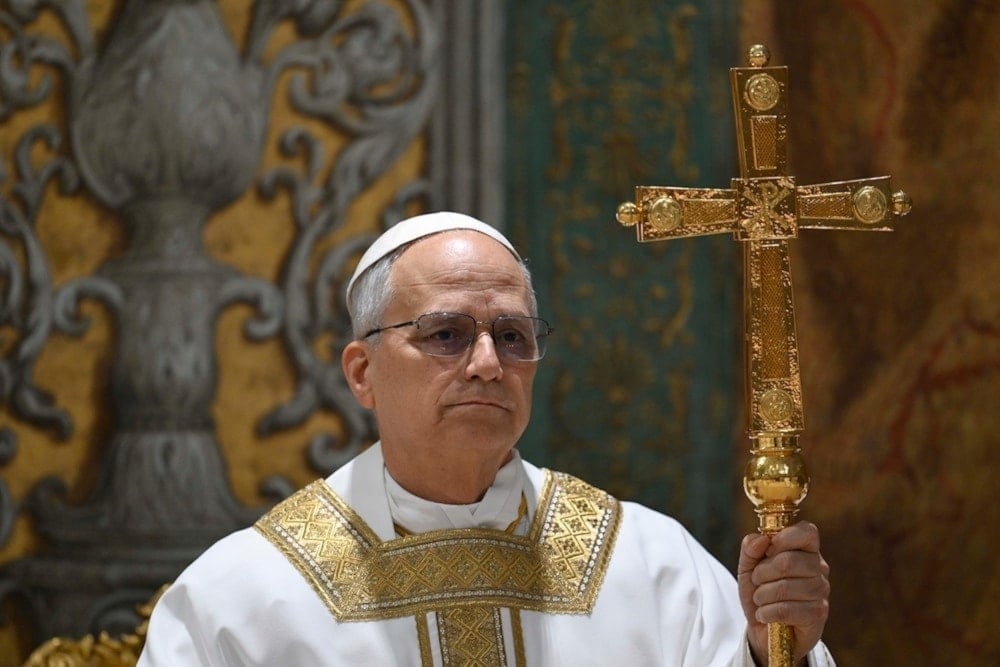Pope Leo XIV calls for press freedom, release of jailed journalists
In his first media address, Pope Leo XIV urges truth in journalism, rejects media division, and calls for the release of 361 jailed reporters worldwide.
-

Newly elected Pope Leo XIV concelebrates Mass with the College of Cardinals inside the Sistine Chapel at the Vatican, the day after he is elected 267th pontiff of the Roman Catholic Church, May 9, 2025. (AP)
The new pope condemned media polarization, defended imprisoned reporters, and stressed AI responsibility in journalism.
In his first official address to journalists, Pope Leo XIV called on members of the press to reject division and partisanship, urging them instead to focus on truth-telling and responsible communication.
Addressing thousands of reporters at the Vatican, Leo warned against a “war of words and images” and emphasized the media’s role in bridging divides rather than inflaming them.
“The way we communicate is of fundamental importance,” said the pope. “We must say ‘no’ to the war of words and images; we must reject the paradigm of war.”
Pope Leo, formerly Cardinal Robert Prevost, also highlighted the plight of journalists detained worldwide. According to the Committee to Protect Journalists, 361 reporters are jailed globally as of the end of 2024. Leo called their suffering a moral challenge to the international community.
“The suffering of these imprisoned journalists challenges the conscience of nations and the international community,” he said, “calling on all of us to safeguard the precious gift of free speech and of the press.”
Pontiff speaks on responsible use of AI in the newsroom
In a nod to emerging technology, Leo also addressed the role of artificial intelligence in journalism, urging caution and responsibility.
“Ensure that it can be used for the good of all,” he said, “so that it can benefit all of humanity.”
Pope Leo XIV was elected on May 8, following the death of his predecessor, Pope Francis. A relatively unknown figure on the global stage, Leo spent much of his career as a missionary in Peru. He is the first US-born pope in the history of the Catholic Church.
The meeting marked his first audience with a large public group at the Vatican. Entering the audience hall, he was met with enthusiastic applause.
Delivering most of his remarks in Italian, Leo opened with a light-hearted comment in English, “Thank you for this wonderful reception. They say that when they clap at the beginning, it doesn’t matter much. If you’re still awake at the end and still want to applaud—thank you very much.”

 2 Min Read
2 Min Read










